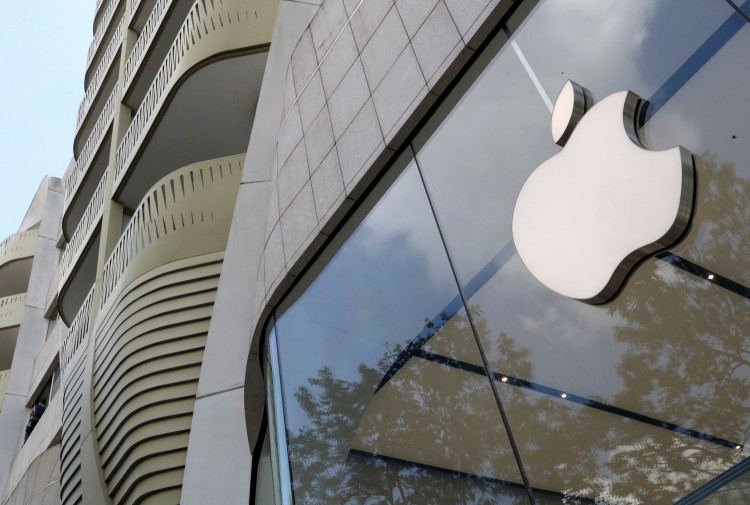President Donald Trump called on Apple to eliminate its diversity, equity, and inclusion (DEI) policies on Wednesday, escalating his administration's push against corporate DEI initiatives. His demand followed a shareholder vote at Apple's annual meeting the previous day, where investors overwhelmingly rejected a proposal to end the company's diversity programs.
"Apple should get rid of DEI rules, not just make adjustments to them. DEI was a hoax that has been very bad for our country. DEI is gone!!!" Trump wrote in an all-caps post on Truth Social. The former president, who issued an executive order in January to dismantle DEI programs across the federal government and private sector, has increasingly pressured corporations to roll back such policies.
The proposal to curb Apple's DEI efforts was introduced by the National Center for Public Policy Research (NCPPR), a conservative think tank that has targeted DEI policies at several major companies. The group argued that DEI programs pose "litigation, reputational and financial risks" to businesses and their shareholders. Apple's board, however, urged investors to reject the proposal, asserting that it "inappropriately" sought to interfere with the company's management.
Apple CEO Tim Cook defended the company's approach to diversity while acknowledging the shifting regulatory landscape. "As the legal landscape around these issues evolves, we may need to make some changes to comply, but our North Star of dignity and respect for everyone and our work to that end will never waver," Cook said at the meeting. He emphasized that Apple's "strength has always come from hiring the very best people and then providing a culture of collaboration, one where people with diverse backgrounds and perspectives come together to innovate."
Despite Apple's firm stance, many U.S. corporations have begun scaling back their DEI commitments amid mounting political and legal challenges. Companies such as Meta, Alphabet, and JPMorgan Chase have adjusted or withdrawn diversity programs, citing concerns over legal scrutiny and shareholder pressure.
- Feb. 25: Bank of America removed "aspirational" diversity hiring targets and replaced the term "diversity" with "talent" and "opportunity" in reports.
- Feb. 20: Citigroup rebranded its "Diversity, Equity, and Inclusion and Talent Management" team to "Talent Management and Engagement," while eliminating DEI hiring goals.
- Feb. 17: JPMorgan Chase, Morgan Stanley, and other major banks began reducing DEI-related language in official filings.
- Feb. 11: Goldman Sachs dropped its board diversity requirement, which previously mandated that companies it takes public have at least two diverse directors.
- Jan. 10: Meta ended several programs aimed at boosting diversity in hiring, citing the "changing legal and policy landscape."
Trump's Justice Department, led by Attorney General Pam Bondi, has taken an aggressive stance against DEI programs. Bondi issued a directive to investigate and penalize private companies and universities that receive federal funds if their DEI policies are found to be discriminatory. The administration has cited the Supreme Court's 2023 ruling in Students for Fair Admissions v. Harvard, which struck down race-based affirmative action in college admissions, as a legal foundation for dismantling corporate diversity programs.
While many companies have opted to scale back DEI efforts, some firms have stood by their diversity commitments. Costco shareholders overwhelmingly voted against a proposal to evaluate the risks of maintaining DEI policies, with more than 98% rejecting the initiative. Delta Airlines Executive Vice President Peter Carter reaffirmed the company's stance, stating, DEI is "about talent and that's been our focus." Coca-Cola warned in a recent SEC filing that abandoning DEI could negatively impact business, stating that a diverse workforce "helps drive a culture of inclusion, innovation, and growth."
Trump's efforts to eliminate DEI programs have also extended to government-funded institutions. The Smithsonian Institution and PBS have shuttered their diversity offices, while the FBI closed its DEI division in December. Trump has positioned these moves as part of a broader strategy to end what he describes as "government-sponsored social engineering" and promote a "merit-based society."
The anti-DEI movement has gained momentum among conservative activists and business leaders, with figures such as Elon Musk and hedge fund billionaire Bill Ackman vocalizing their opposition. Ackman, who played a role in the resignation of former Harvard President Claudine Gay, has characterized DEI as discriminatory, while Musk has called it "anti-merit."




